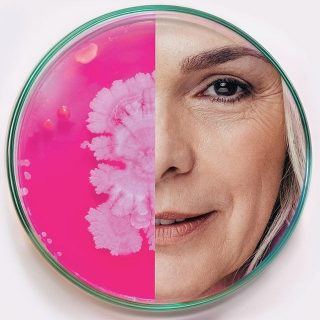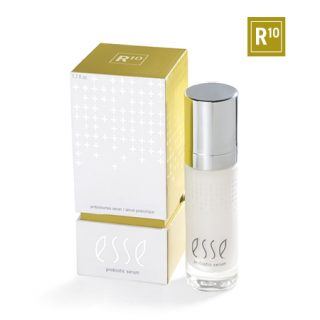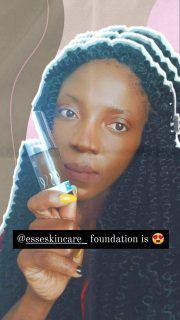Have you ever used probiotics on your skin? Yes, chances are that you’ve taken probiotics to help improve your gut health, but what about the health of your skin? Probiotics are intended to balance out the bacteria in your gut, so why aren’t you concerned about the bacteria on your skin? Especially since the skin is the largest organ on the body, and that it’s exposed to a wide variety of toxins.
So what if you could not only protect your skin, but also undo all the strain it’s taken from toxins in the past few years? Thanks to a bio-clinical skincare brand, I got the opportunity to re-wild my skin and create a healthy environment.

esseskincare_/instagram
The Skin Microbiome and Probiotics
Like your gut, your skin also has a microbiome that regulates its inflammation and helps to keep it healthy. However, like your gut, certain factors can affect the skin’s microbiome. These include diet, clothing, hygiene, and other lifestyle factors. A disruption in the skin microbiome can trigger inflammatory skin conditions like acne, eczema, psoriasis, and rosacea.
Thankfully, like your gut, you can care for the skin microbiome and in recent years, the most popular way to do so has been the use of probiotics.
Rewilding My Skin With Esse Probiotic Serum and Probiotic Foundation
Esse is an organic and vegan South African company that’s on a mission to return the skin to its natural and wild state, with the use of prebiotics and LIVE probiotic microbes. In addition to being organic, vegan, and cruelty-free, Esse also supports fair trade and is a carbon-neutral company.
This past June, Esse set out on a mission to help me rewild my skin. The intention was to restore my skin’s microbiome to its balance and ‘wild’ state through green chemistry. To help me on my rewilding journey, they sent me their probiotic serum, which is also the world’s first live probiotic serum. They also sent me a personalized sample of their Esse Foundation.
So, how did these two products help my skin’s microbiome?
Serum helped with breakouts

Esse Probiotic Serum
I have combination skin, and thanks to the new accessory that is our face masks, I’ve had to deal with breakouts and maskne.
However, thanks to the anti-inflammatory powers of probiotics, I soon noticed that my pimples were slowly dwindling two weeks into using the serum. Now, while it could have just been good luck, a 2020 study found that topical applications of probiotics can improve skin conditions like acne.
Serum helps with blemishes
Sadly, you can’t have breakouts without blemishes, and that’s exactly what maskne brought me. Luckily for me, I had the power of probiotics.
The serum not only alleviated my blemishes, but also helped to clear any pigmentation issues.
The serum hydrated my skin
June is one of the coldest times in South Africa, and this has a drying effect on the skin. That said, research has found that probiotics can help to increase skin hydration and this may be why my skin felt so supple during the cold months.

Esse Probiotic Foundation
What about the foundation?
My skin absolutely loved this lightweight foundation. The foundation also contains vitamin C, jojoba oil, and aloe vera. This explained why my skin seemed to look and feel better after I took the foundation off.
However, I will admit that the shade closest to my skin tone did leave a grey cast. This is likely due to the low number of shade options (there are only 10 shades), Thankfully, after using a few drops of The Body Shop Shade Shade Adjusting Drops, the grey cast was gone, and I was able to fully appreciate the look and feel of the foundation on my skin.
What’s the verdict?
No one can underestimate the power of probiotics. If you really care about the health of your skin, then you need to include more probiotics in your routine. Luckily for you, you don’t have to look far to give your skin a probiotic boost.
If you’re interested in more Esse probiotic skincare products, click here.
References
Di Marzio, L., Cinque, B., Cupelli, F., De Simone, C., Cifone, M. G., & Giuliani, M. (2008). Increase of skin-ceramide levels in aged subjects following a short-term topical application of bacterial sphingomyelinase from Streptococcus thermophilus. International journal of immunopathology and pharmacology, 21(1), 137–143. https://doi.org/10.1177/039463200802100115
Knackstedt, R., Knackstedt, T., & Gatherwright, J. (2020). The role of topical probiotics in skin conditions: A systematic review of animal and human studies and implications for future therapies. Experimental dermatology, 29(1), 15–21. https://doi.org/10.1111/exd.14032



![women [longevity live]](https://longevitylive.com/wp-content/uploads/2020/01/photo-of-women-walking-down-the-street-1116984-100x100.jpg)










